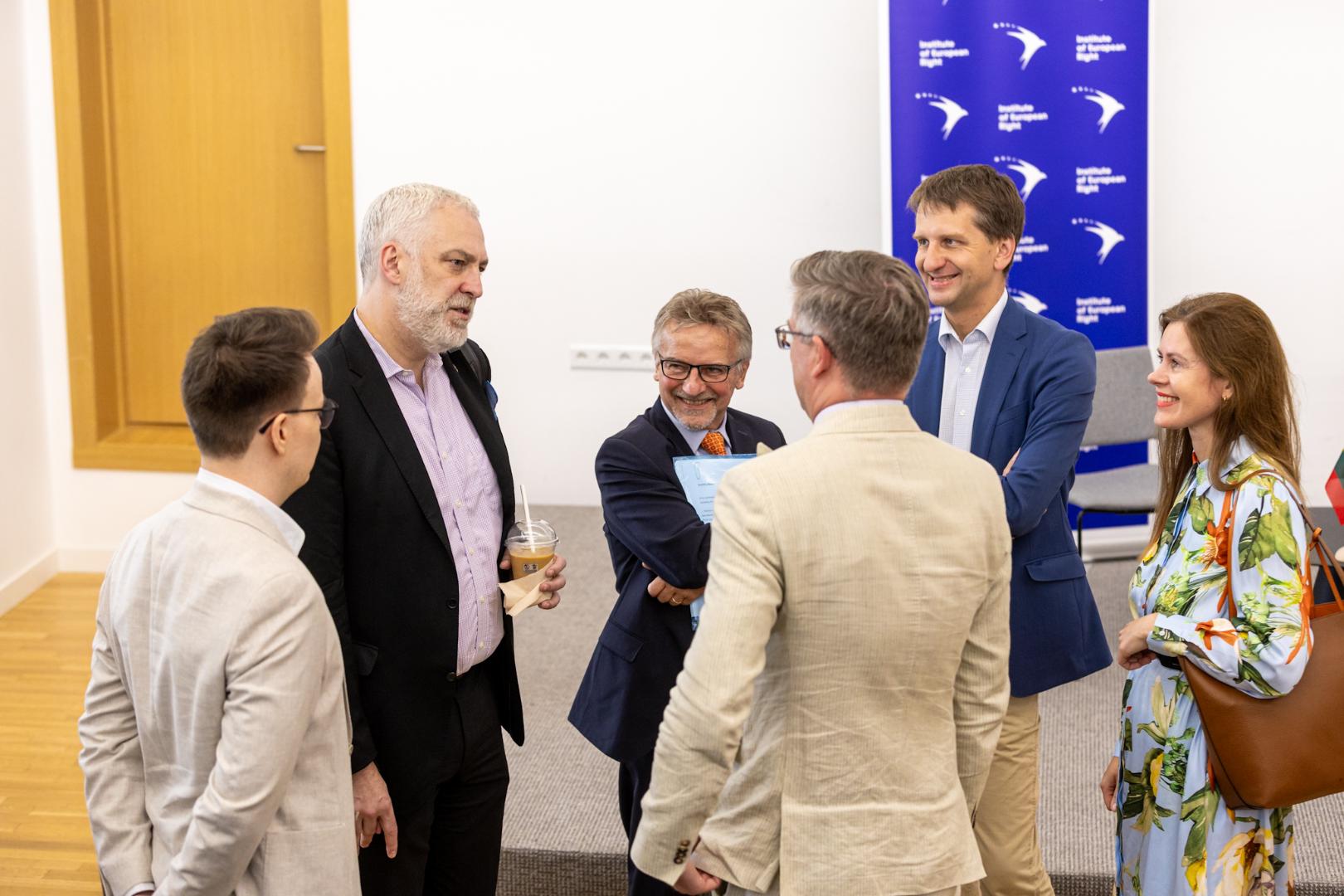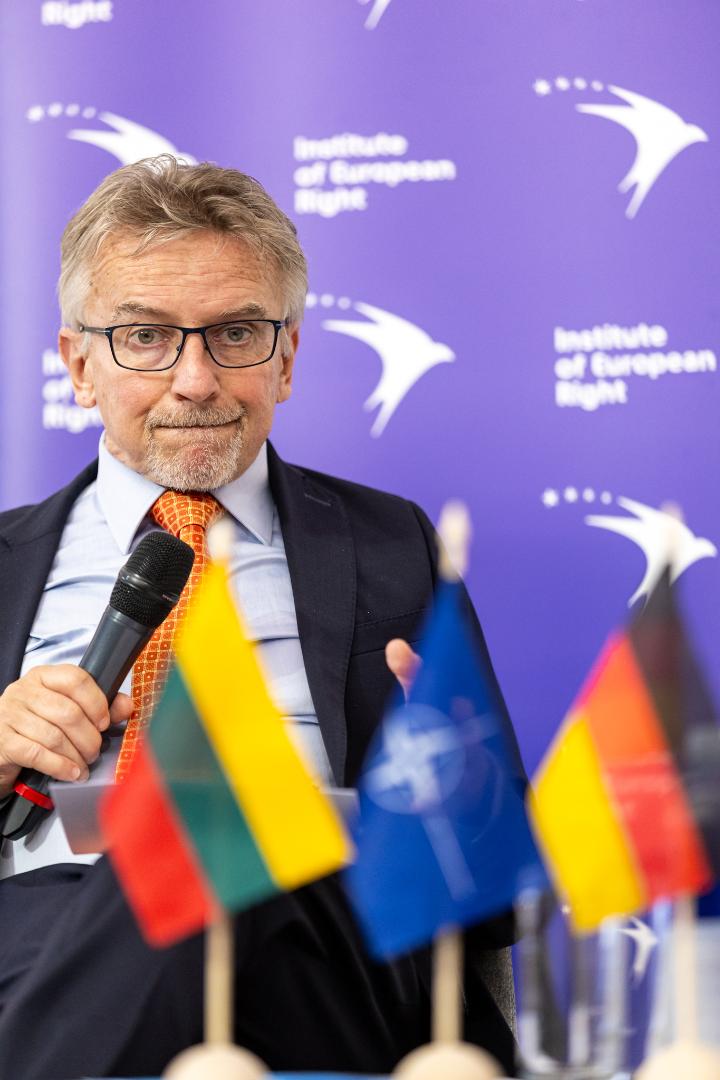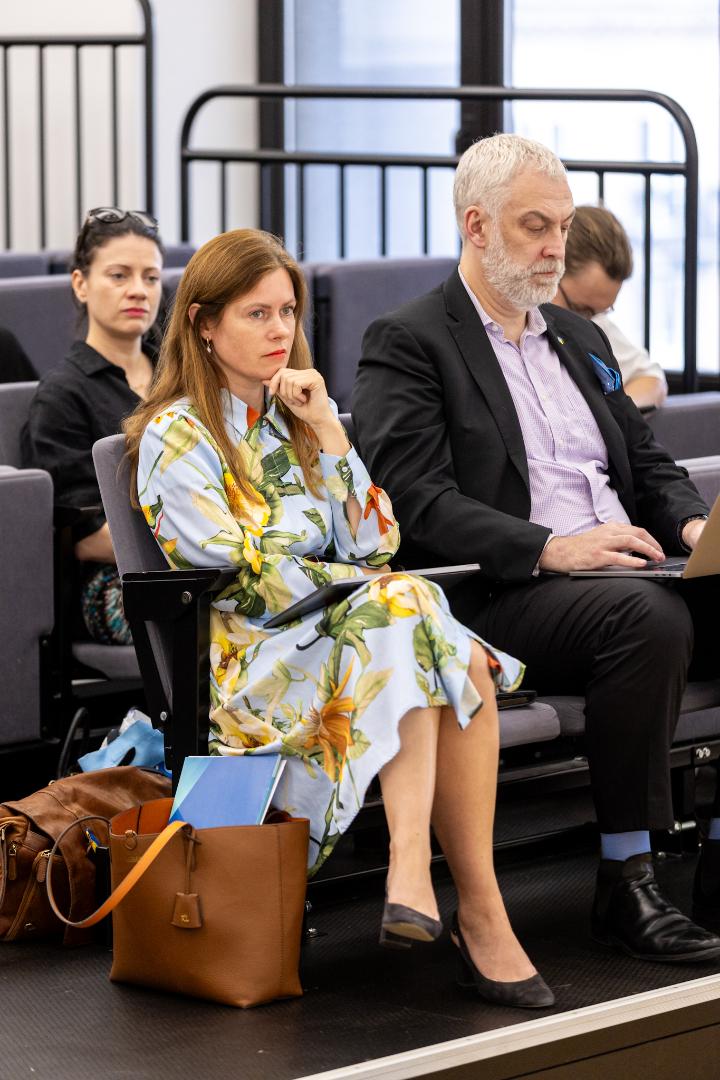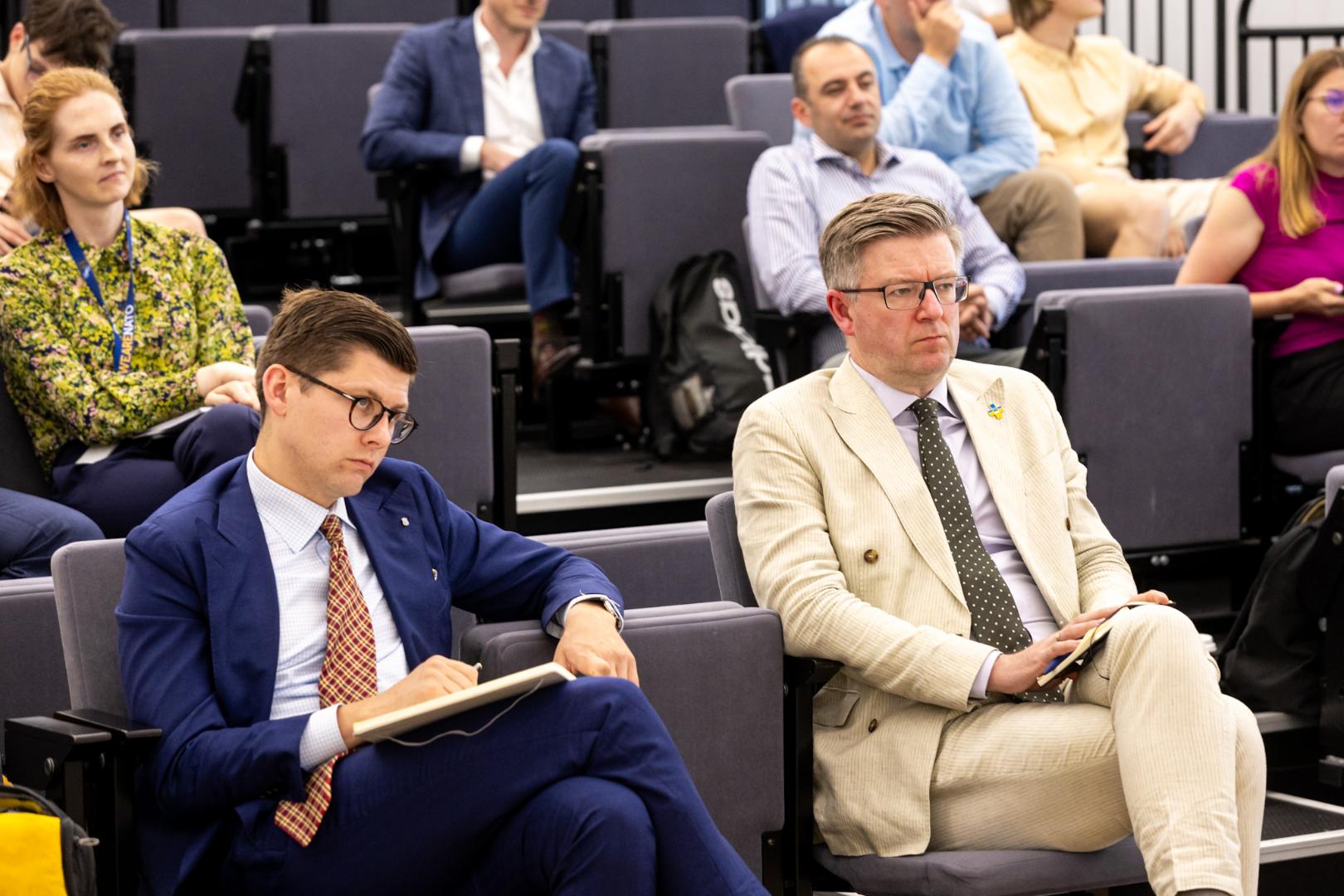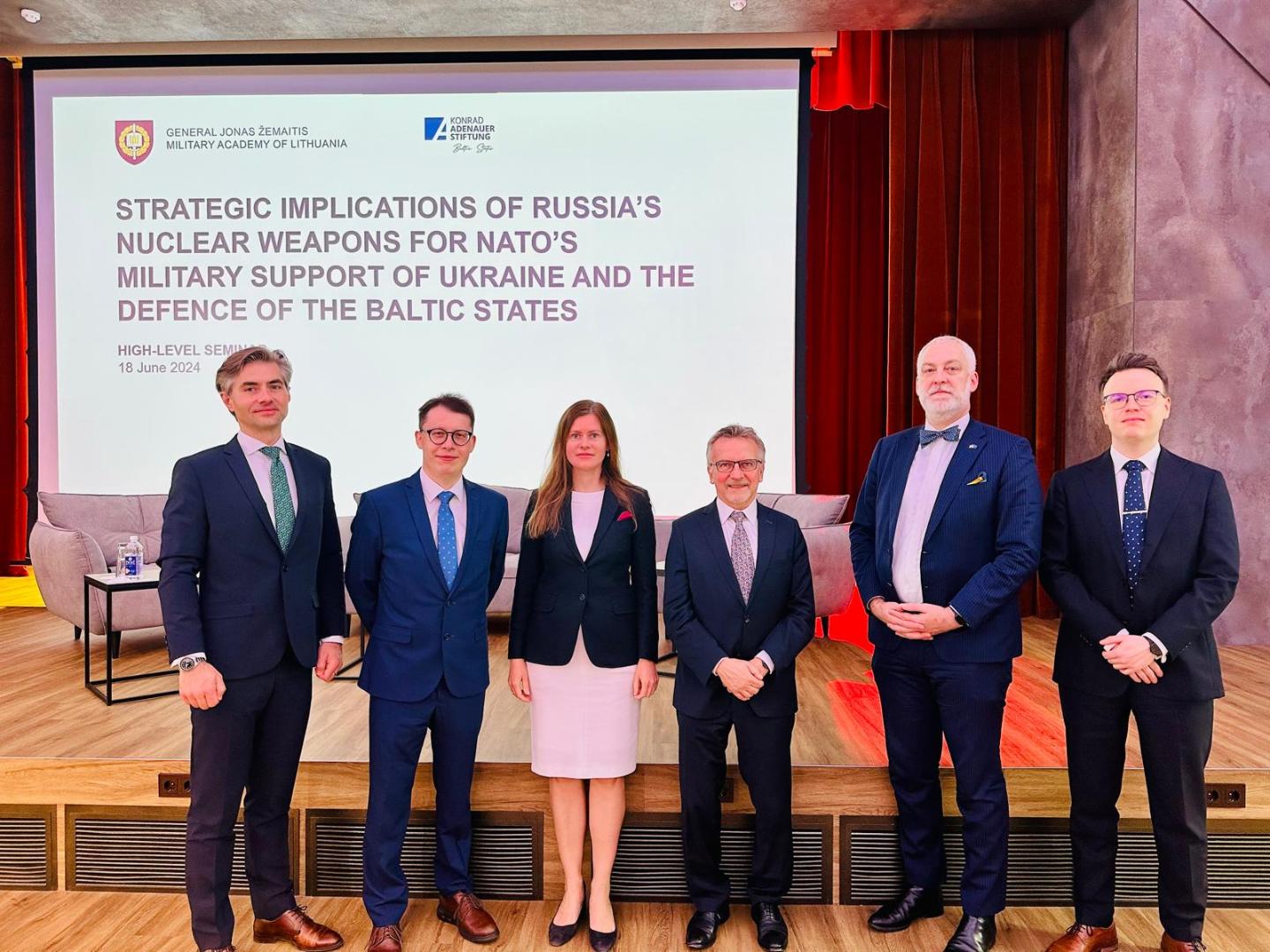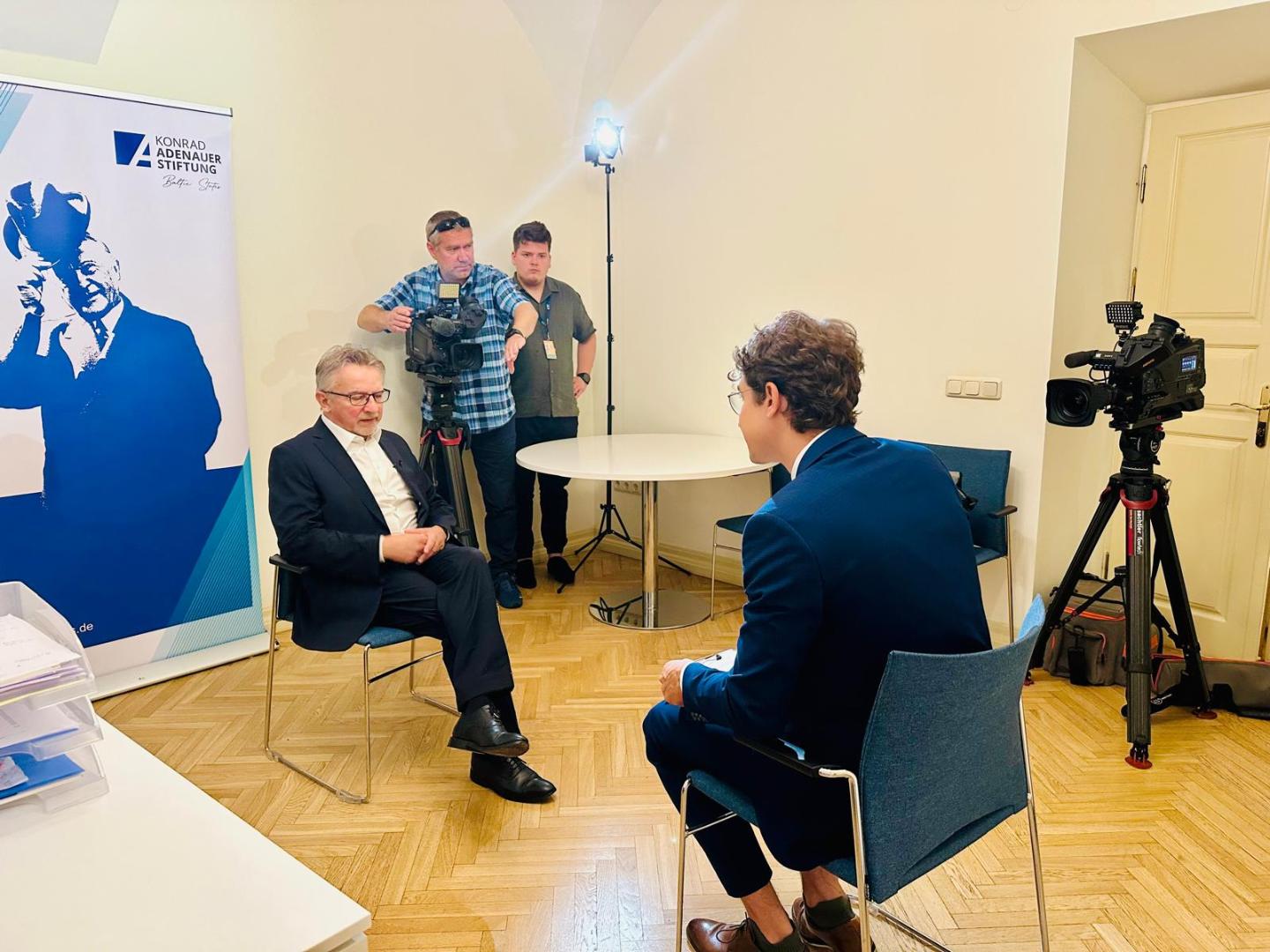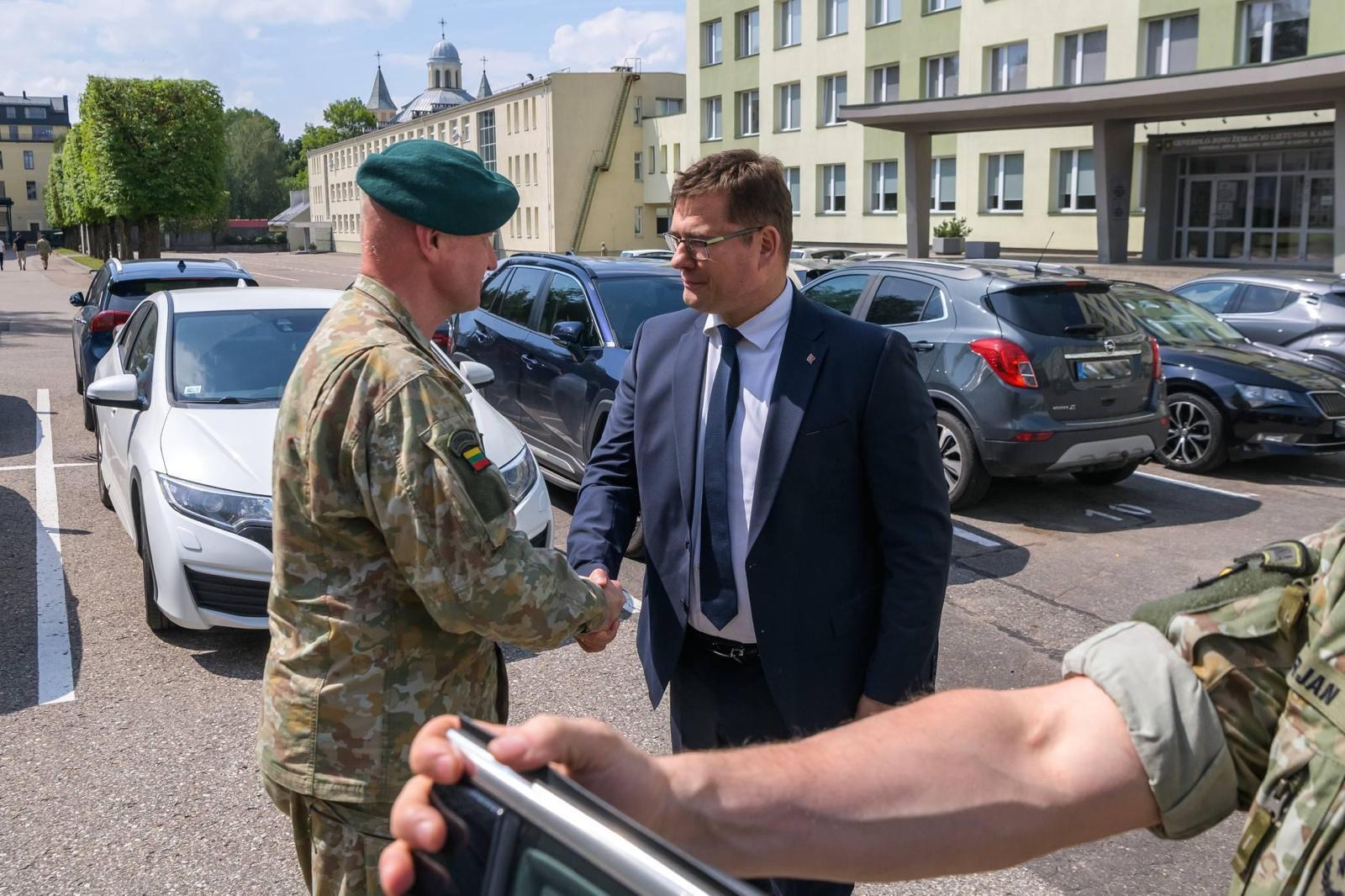Nuclear weapons and their impact on geopolitical decisions are a complex issue.
However, with recent Russian nuclear sabre-rattling, the topic of deterrence is more important than ever. To raise the “nuclear IQ” of the public and decision-makers, Konrad-Adenauer-Stiftung Baltic states, together with the General Jonas Žemaitis Military Academy of Lithuania, hosted a seminar on the impact nuclear weapons have on aid to Ukraine and the defence of NATO territory in the Baltic regions.
Also, a public event jointly with Institute for European Right was held in National Library of Lithuania. Here, Dr. Karl-Heinz Kamp and Fabian Hoffmann discussed NATO’s future nuclear planning, taking into account recent developments and lessons from the Russian invasion. They stressed that the collective West had neglected discussions about nuclear weapons after the end of the Cold War, while Russia has continued to focus on nuclear strategy, capability, and policy.
A high-level seminar was held at the General Jonas Žemaitis Military Academy, with the topics being the impact of Russian nuclear threats on military aid to Ukraine and the role NATO’s nuclear arsenal plays in the defence of the Baltic states. The aforementioned guests were joined by William Alberque and Artur Kacprzyk. Together with Lithuanian experts, they discussed how Russia’s calculations regarding nuclear use work and how we can influence the cost/benefit scale to make it absolutely undesirable for Russia to use nuclear weapons.
A key issue for all participants was the need for the public to discuss these topics more, to raise the so-called “Nuclear IQ” of our society. This will increase our resilience to nuclear threats and educate the public on the importance of nuclear weapons on a geopolitical level. This is important because Russia understands that the Western public is very susceptible to nuclear threats and is using this to influence our decisions. If Western states are too afraid of this sabre-rattling and the threats achieve their political goals, other states will learn from this and increase their desire to have a nuclear arsenal of their own. How we react to these threats, therefore, has a direct connection to global nuclear proliferation.
There are, however, positive signs as well. NATO is changing the way it talks about its nuclear forces and is taking a more proactive stance in deterrence, especially regarding the defence of alliance territory. We also learned that historically, conflicts between nuclear states, whether direct or indirect confrontation, did not automatically turn into an unstoppable escalation spiral. There was always a testing and crossing of “red lines” and then, if necessary, a pullback. New plans for modernizing and diversifying NATO’s “nuclear umbrella” also aid in deterring potential adversaries.
Regarding the defence of the Baltic states, the experts made it clear that the biggest threat here is that Russia miscalculates allied resolve. If they believe we are not unified and determined to defend NATO territory, their cost/benefit calculation might change in favour of an invasion into one or all Baltic states. To prevent this, NATO must make it clear that it will do everything necessary to defend member states and maintain credible deterrence, which, of course, also includes the nuclear domain.



